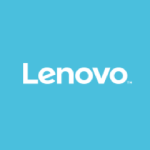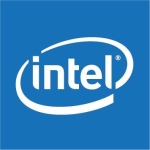I found HP Virtual Connect (VC) technology to be the most valuable. VC technology simplifies networking configuration for the server administrator using an HP BladeSystem c-Class environment. VC adds a hardware abstraction layer that removes the direct coupling between the LAN and SAN. Hence, it reduces the number of cables required for an enclosure, the number of edge switches, enables direct server-to-server connectivity within the BladeSystem enclosure and more. This feature can significantly reduce the time required to complete a service event.
Without VC, changes to server hardware (for example, replacing the system board during a service event) typically implies changes to the MAC addresses and WWNs. The server administrator must then contact the LAN/SAN administrators, give them the updated addresses, and wait for them to make the appropriate updates to their infrastructure. With VC, a server profile keeps the MAC addresses and WWNs constant, so the server administrator can apply the same networking profile to new hardware. Additionally, VC Flex-10 and VC Flex-20 technology further simplifies network interconnects. Flex-10/Flex-20 technology allows you to split a 10 Gb or 20 Gb Ethernet port into four physical function NICs (called FlexNICs). This feature lets you replace multiple lower-bandwidth NICs with a single 10 Gb or 20 Gb adapter. Prior to Flex-10, a typical server blade enclosure required up to 40 pieces of hardware (32 mezzanine adapters and eight modules) for a full enclosure of 16 virtualized servers. Using HP FlexNICs with Virtual Connect interconnect modules reduces the required hardware by up to 50 percent by consolidating all NIC connections onto two 10 Gb or 20 Gb ports.
As server technology moves forward, I expect HPE server solutions to be compatible with the advancements such as supporting 40+ GbE network adapter and further reducing the complexities in a network topology such as fewer cables, edge switches and simple administration.
This seems to be important to me because in today's competitive environment, the end users expect to have a high-speed SAN network, which majorly depends on the network adapter's speed and performance. In my opinion, the product must support high-speed network adapters in order to meet the customer's expectations.
I've been working on the HP server technology for almost three years now.
I encountered stability issues, particularly with HPE DL-580G8 and DL-360G9 servers. With a network topology similar to be used by an end-user, I encountered server failures such as server freeze, slow booting, and difficulties scanning the LUNs when performing a boot from SAN.
I did not really encounter any scalability issues! I would say the product is quite stable as far as scalability is concerned.
The initial setup (such as network connections) is quite straightforward. The configuration part too is simple, considering that one must know what he/she is doing.
Server technologies nowadays are expensive. Be it HPE, Dell or EMC. In case of large network deployments, nothing can beat HPE Blade Server Technology (with/without VC technology). It provides simple and efficient configuration and administration.
One must be aware of the objectives he/she is expecting. Thorough research about the product and the reviews is always advisable from my end. If it fits in, the user can very well carry on.










